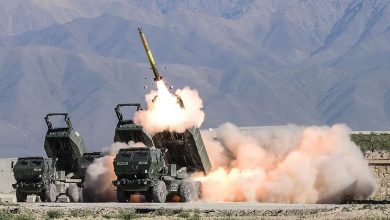Defense minister: France won’t delegate its security to US

Sebastien Lecornu also criticizes French EU official’s remarks about idea of trade deal with Washington
France will not delegate its security to the US, the country’s defense minister said Tuesday.
France has a different heritage than other European countries and has never outsourced its security and its armament industries to Washington, unlike the UK, Sebastien Lecornu said in an interview with broadcaster France Inter.
Lecornu said that European countries must make a choice.
“The first choice: Will they spend more public finances to defend themselves? The second option: Is this money made to buy more weapons from the US and accelerate this dependence, or on the contrary, to finally ensure a European autonomy framework?,” he said.
Lecornu said he agreed with US President Donald Trump that European countries must spend more on defense, and proudly said that Paris will spend €50.5 billion ($52.6 billion) if parliament approves the budget bill.
“And we will continue increasing it up to €67 billion,” he added.
Lecornu also criticized a French European Union official’s remarks about the idea of a possible trade deal with the US.
Stephane Sejourne, the French Commissioner responsible for prosperity and industrial strategy and a former French foreign minister, told France Inter on Monday that Europe could not “have a trade war and build European defense at the same time.”
Lecornu disapproved of this stance.
“At a time when the Commission is supposed to defend Europe’s strategic autonomy, we are already launching talks that could leave the upper hand to the American armaments paid by European, thus French taxpayers. This is unacceptable.”
Lecornu emphasized that Europe and France will not “trade their military security for hamburgers and German cars.”
“That it is necessary to do everything to avoid a trade war, Sejourne is right in saying that. Thinking there could be a barter between defense and trade, never ever would we French resolve to that,” he stressed.
Donald Trump’s re-election as president of the US has stirred Europe amid economic difficulties and debate over sovereignty. European leaders started to question their position in the world and to discuss policies to adopt regarding defense, security, support for Ukraine, trade and competitiveness.





